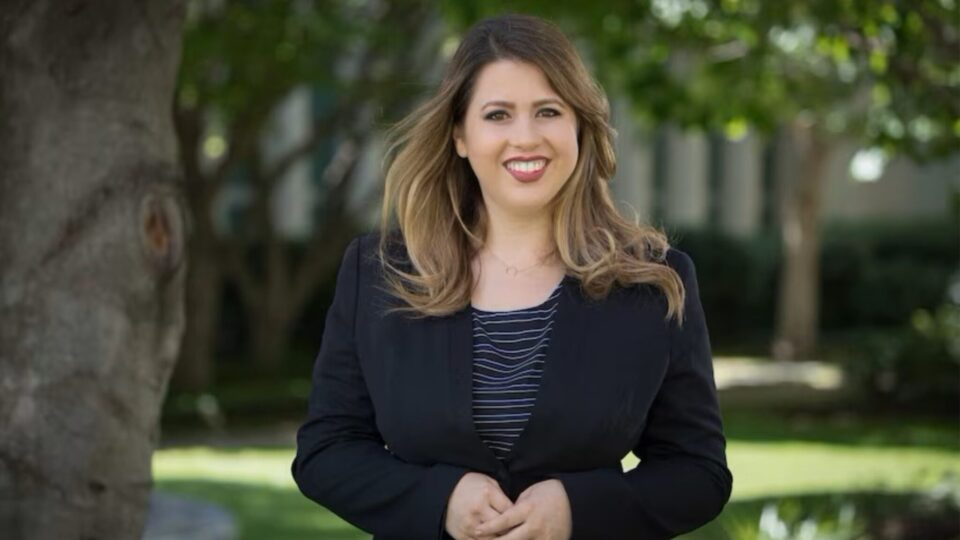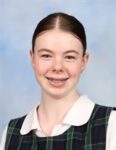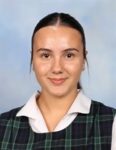
Former student Stephanie Dalzell engages with students on a very personal topic
Former student Stephanie Dalzell (Class of 2005) is a political reporter in the ABC’s Parliament House bureau in Canberra. Last term we were delighted to have Stephanie conduct a Zoom chat with our Year 9 students on a topic that she has a very personal connection with and has become quite a champion of!
Can you briefly explain your health journey and how your experience led you to be an advocate for health and in particular endometriosis awareness?
One of the only upsides to having two benign brain tumours during my teen years and early adulthood was that I stopped having my period. But once the tumours were removed my period – and the debilitating pain that comes with it – returned swiftly. After living with that paralysing pain for years and being dismissed by doctors, I was diagnosed with endometriosis at the age of 25.
Having endometriosis can be debilitating and isolating, and part of my motivation for talking about it is so other women and girls with this disease to know they are not alone. I want women – and young girls in particular – to know that having excruciatingly painful periods is not normal, and something that’s worth getting checked out by a doctor. I’ve also sought to ensure that women are equipped with the information they need to advocate for themselves in a system where medical misogyny can occur.
Despite battling many health issues, you have gone on to have a successful career as a political journalist for the ABC. Who/What inspired and motivated you to keep going and pursue your career in journalism?
Part of what I love about journalism is that it gives a voice to the voiceless. The stories I like telling the most examine the entrenched social inequities which see Australians from lower socio-economic and diverse backgrounds fall through the cracks. My own experience navigating the health system has helped inform my reporting over the years and is part of why I’m interested in politics and health reporting.
I’ve learned how to maximise the good health days and manage the bad ones during my 15-year career, and am lucky to work for a supportive organisation that understands the health challenges I deal with on a daily basis.
Many people have helped and inspired me along the way, but I was lucky enough as a cadet to have a mentor in Perth who helped me navigate my health struggles while I was learning to be a journalist and who still helps me today.
What are your fondest memories of your time at St Ursula’s?
I have many fond memories of my time at St Ursula’s but the highlight is the lifelong friendships that were forged. At school I was lucky enough to meet many incredible people who are still my close friends two decades later.
I also benefited from the tutelage of a range of talented teachers who helped guide me, especially when I was too sick to come to class. I was diagnosed with my first brain tumour in Year 10 and the surgery to remove it resulted in meningitis. As a result I missed months of school, and many special teachers at St Ursula’s went above and beyond to help me catch up and ensure I did the best I could.
We hope you enjoy reading these two student reflections:
In Week 9, we had the privilege of hearing from former student, Stephanie Dalzell, now a Political Reporter for ABC news. She shared her experiences with serious health challenges, including two brain tumours and endometriosis. Stephanie shared her powerful journey of growing up with a brain tumour, which disrupted her high school years. She even spent her 15th birthday in hospital. The tumour later returned when she was a young adult, requiring another surgery. She also spoke about living with Endometriosis and how it affected her daily life. I’m very inspired by Stephanie’s story because she faced the pain with strength and determination, especially since she was around my age when she got diagnosed with these health challenges.
 Sophie Steel
Sophie Steel
Year 9
Through hearing her story, we gained a deeper insight into women’s health issues and the physical and emotional impact it can have on young women. The presentation connected with our ‘Staying Alive’ unit in science, increasing our understanding of the inner workings of the body and helping us connect the scientific concepts we have learnt in class to the experiences of individuals in our world. By listening to someone who once sat in our seats, it made the experience incredibly real. We were moved by her resilience and her ability to thrive in high school even while experiencing these health issues. She encouraged us to use our voices to raise awareness on endometriosis and to listen to our bodies and their needs.
 Lia Pappas
Lia Pappas
Year 9

